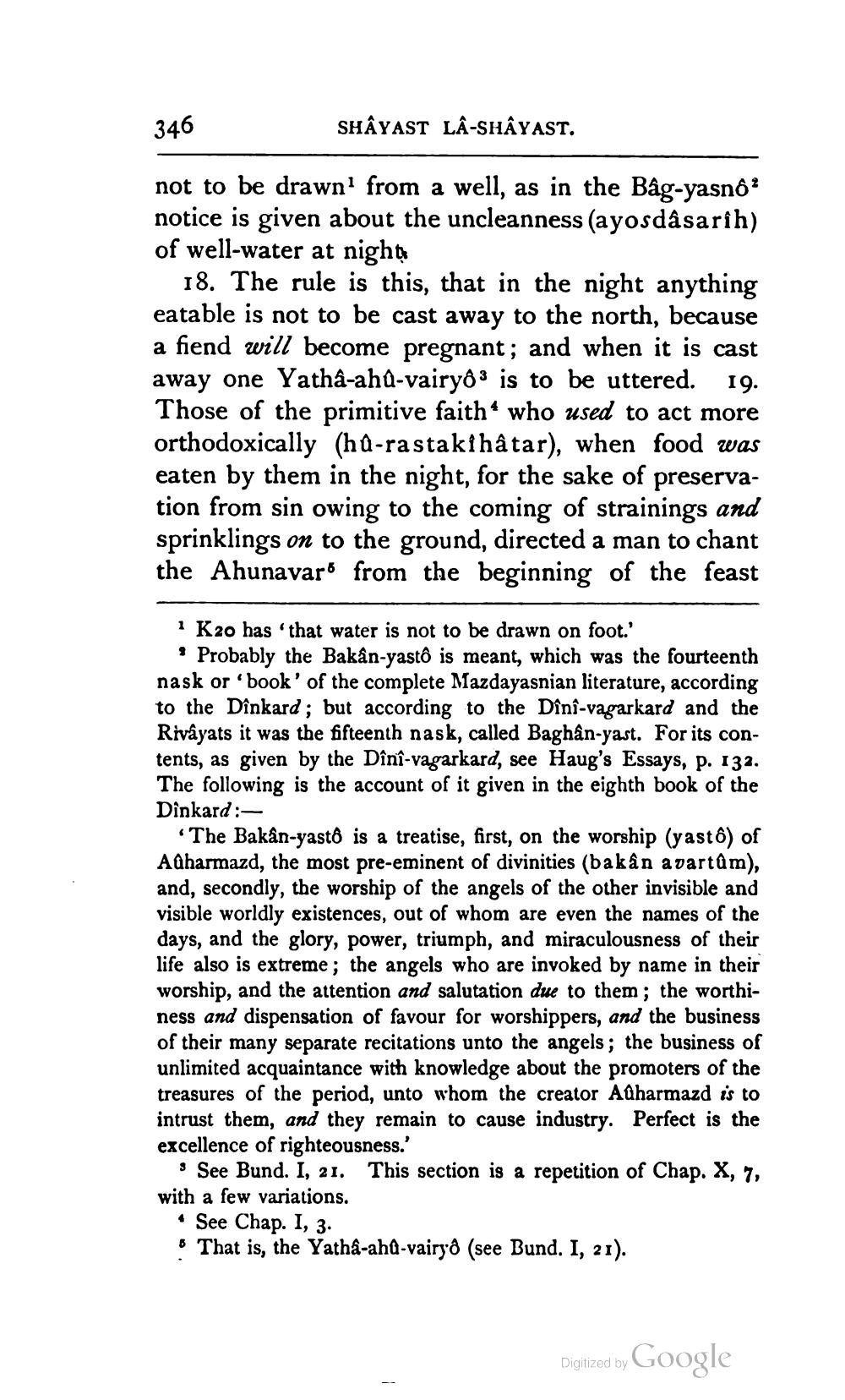________________
346
SHAYAST LÂ-SHAYAST.
not to be drawn from a well, as in the Bâg-yasno? notice is given about the uncleanness (ayosdasarih) of well-water at nighộ
18. The rule is this, that in the night anything eatable is not to be cast away to the north, because a fiend will become pregnant; and when it is cast away one Yathâ-ahd-vairy83 is to be uttered. 19. Those of the primitive faith* who used to act more orthodoxically (hơ-rastakihâtar), when food was eaten by them in the night, for the sake of preservation from sin owing to the coming of strainings and sprinklings on to the ground, directed a man to chant the Ahunavaró from the beginning of the feast
1 K20 has that water is not to be drawn on foot.'
. Probably the Bakân-yastó is meant, which was the fourteenth nask or 'book' of the complete Mazdayasnian literature, according to the Dînkard ; but according to the Dînî-vagarkard and the Rivayats it was the fifteenth nask, called Baghân-yast. For its contents, as given by the Dînî-vagarkard, see Haug's Essays, p. 132. The following is the account of it given in the eighth book of the Dinkard :
The Bakân-yastő is a treatise, first, on the worship (yasto) of Allharmazd, the most pre-eminent of divinities (bakân avartům), and, secondly, the worship of the angels of the other invisible and visible worldly existences, out of whom are even the names of the days, and the glory, power, triumph, and miraculousness of their life also is extreme; the angels who are invoked by name in their worship, and the attention and salutation due to them; the worthiness and dispensation of favour for worshippers, and the business of their many separate recitations unto the angels; the business of unlimited acquaintance with knowledge about the promoters of the treasures of the period, unto whom the creator Allharmazd is to intrust them, and they remain to cause industry. Perfect is the excellence of righteousness.'
See Bund. I, 21. This section is a repetition of Chap. X, 7, with a few variations. • See Chap. I, 3.
That is, the Yatha-ahd-vairyð (see Bund. I, 21).
Digitized by Google




